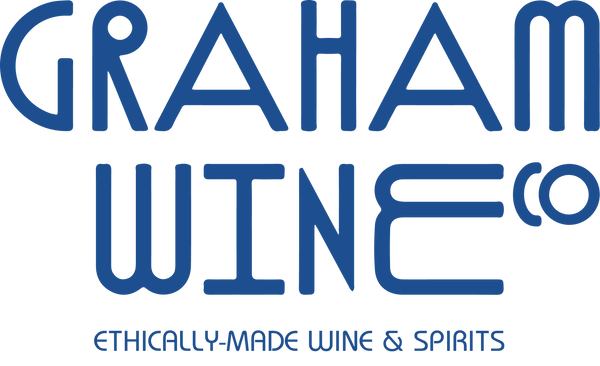How We Select Our Ethical Wines and Spirits
1. It’s Delicious and Fairly Priced
First of all, a product has to be delicious. And it’s also important that it's priced fairly, both to reflect the quality of the product and to ensure fair compensation of labor down the supply chain.
2. It’s Made with Fair Labor Practices
When we begin to work with a new producer or distributor, one of our first conversations is about understanding their labor practices, and the labor conditions in the countries and regions they produce in. We are proud to work with producers at the forefront of the farmworker justice movement in wine, and distributors who have taken additional steps to ensure the fair treatment of laborers at their portfolio companies.
That said, our policy is trust, but verify. While we take steps to vet the labor practices of all of the products in our inventory, we only mark as “Fair Labor” those that are subject to some form of independent third-party verification and accountability. We consider a unionized labor force to be one of the strongest means to ensure fair labor practices, and are proud, in particular, of our wide selection of union-made bourbon. In addition, there are a small handful of third-party certifications we believe ensure credible accountability for labor practices: Regenerative Organic Certification, B Corporation status, Fair Trade International certification, and we mark products accordingly.
We are also in the process of formalizing partnerships with a number of labor advocacy groups and journalists on the ground in key wine producing regions to further expand our ability to verify labor practices.
3. It’s Made with Environmentally Responsible Farming Practices
While not perfect, there is a more mature system of independent third-party accreditation of responsible farming practices. Products that have been certified by the USDA or another internationally-recognized certification body as being grown without synthetic fertilizers or pesticides, we mark as Organic. Biodynamic farming requires farming practices that are not only organic, but also ensure biological diversity, water conservation, livestock integration and more. We mark products that have received the Demeter biodynamic certification as Biodynamic Organic. Regenerative Organic certification is the highest standard currently available for responsible farming practices. It certifies a collection of practices that focus on regenerating soil health and the full farm ecosystem, and must consider all players in the farm system, from the soil microbiome to the animals to the workers. We mark products with this certification Regenerative Organic & Fair Labor.
Some of our producers are currently converting to organic, biodynamic or regenerative farming, or are practicing this type of farming without certification; we mark these products as “Sustainable.” Products with B Corporation certification, which is inclusive of substantive programs to reduce environmental impact, are marked “Sustainable (B Corp).”
4. It Supports Representation and Decolonization
While the first three criteria (deliciousness, fair labor, and responsible farming) are our priority, we also endeavor to carry ethically-made products produced by people from backgrounds that are traditionally underrepresented in the wine and spirits industry. We carry a wide range of products made by women, Black and Indigenous winemakers and distillers, as well as LGBTQIA+ people.
In addition, and particularly with respect to spirits tied to histories of colonization and economic exploitation, we aim to carry products from locally-owned companies where profits benefit communities previously subject to those forms of violence and economic extraction. In practice, this means we look to stock agave spirits like tequila and other mezcals from Mexican-owned companies, and rums from locally-owned Caribbean companies.
5. (And We Are Always a Work in Progress)
Are these processes a perfect bulwark against the exploitation of labor and the environment? No. We do believe that they are some of the most comprehensive and rigorous in the industry. And we are committed to a continuing conversation with our customers, producers, distributors and other partners to further improve these criteria as time goes on. If you have something you would like to share with us, you can always reach us at hello@grahamwine.co.
